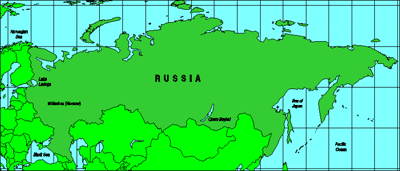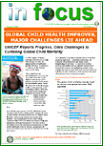|
PUBLIC HEALTH POLICY AND OTHER HEALTH CARE PRIORITIES IN
RUSSIA
Authoritarian rule and central government control have left behind a tragic public health legacy - rampant environmental pollution and a health care system distinguished by its lack of attention to disease prevention. The Washington Post states that "...the declining quality of health care, along with hazardous environmental conditions, poor occupational safety standards and sky-high smoking and alcohol-consumption rates are major factors in a perilous drop in the life expectancy of Russian men, which now stands at 57 years" (Washington Post, Sept. 13, 1996). The 1994 UNICEF Regional Monitoring Study cautioned that the "health, nutrition and mortality crisis in Russia represents a clear threat to the political viability of the entire reform process." Western assistance to date has tended to favor provision of supplies and aid to disaster victims, rather than alleviation of the root causes of increasing mortality and declining life expectancy. And health sector reform, while targeting new approaches to financing, has virtually ignored the need for a framework for disease prevention -- the most fundamental, economically viable long-term strategy for promoting health and increasing productivity. This was the challenge facing CECHE, then known as the Central European Center for Health and the Environment in 1994, when it began a grass-roots program aimed at public health reform in Russia. At the hub of CECHE's "PVO-NIS Project", funded by the U.S. Agency for International Development (USAID) through a subgrant from World Learning, Inc., were two Russian nongovernmental organizations (NGOs) - the Health and Environment Foundation (HEF) in Moscow, started by Alexei Yablokov, President Yeltsin's former Minister of Ecology, and the Association of Physicians of the Don (ADP) in Azov, a progressive group of physicians pushing for health care reform. Over the next two years, with CECHE's financial assistance, technical support, and training in the rudiments of survival, HEF and ADP strengthened their organizations, launched health promotion programs, cultivated decision-makers, developed media relations, and mobilized health care NGOs throughout Russia to form a cohesive network. One important outcome of this effort is the creation of the Russian Public Health Association (ROZA), an association spanning half of Russia's 89 oblasts and patterned after the World Federation of Public Health Associations (WFPHA). ROZA has assumed HEF's and ADP's agenda and leadership for public health education and policy reform - measures that potentially affect some 120 million people throughout Russia. Other main outcomes of the PVO-NIS Project are the following: 
Newly-created Public Health Association affiliates span the Russian Federation
Since the program began, the two key Russian NGOs, HEF and ADP, have become financially stable, tripling their budgets and raising over $169,000 in independent funding. Fundamental to their efforts and success was the consultative and advisory role played by CECHE's long-standing and dynamic partners, including the American Institute of Cancer Research, Center for Science in the Public Interest, Georgetown University's Child Development Center, and World Federation of Public Health Associations -- all ofWashington, DC, and the S.I. Newhouse School of Public Communications of Syracuse State University of NY. HEF, ADP, and ROZA and the NGO network have achieved financial and program stability and acquired some recognition. But their task has just begun. Following in the footsteps of the Alcohol Policy Program is an emerging plan to attack the biggest killer in Russia today -- cigarette smoking. Any grass-roots movement against cigarette smoking in Russia or the CEE-NIS must confront the Madison Avenue tactics of the Western tobacco giants that have invested over $1.5 billion in advertising in this region. In its continuing quest to promote health and prevent disease in the CEE-NIS, CECHE seeks support to equip ROZA and the NGO network as they attempt to remove this last iron curtain to Russians achieving the quality of life so commonplace today in the West. |
|
|||||||||||
Questions? Comments? Concerns? E-mail CECHE at CECHE@comcast.net Go back to the CECHE home page Go back to the CECHE home page
|

